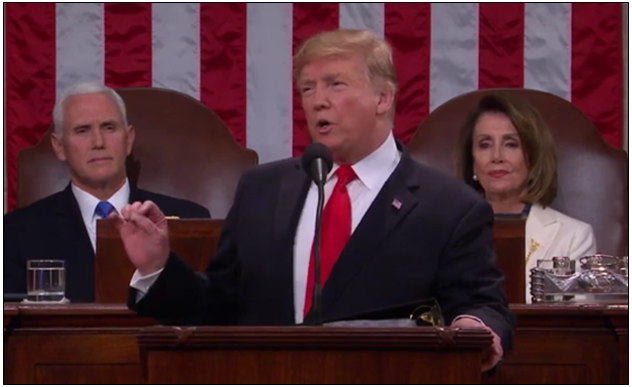“What is clear in the Senate is that there will be enough votes to pass the resolution of disapproval, which will then be vetoed by the president and then in all likelihood the veto will be upheld in the House.”
That was Senate Majority Leader Mitch McConnell (R-Ky.) outlining on March 4 what everyone already knew. That, after passing the House, the Senate will also be passing a resolution disapproving of President Donald Trump’s emergency declaration under the National Emergencies Act reprogramming $8 billion of military spending to build the southern border wall — which the President will just veto.
And then Congress will fail to override the veto, lacking the votes of enough Republicans to overturn the measure. It is essentially a pre-ordained outcome, making the Senate action little more than a show-vote, giving some Senate Republicans an opportunity to posture on an issue and in a situation they did almost nothing to help President Trump avoid.
In 2017, McConnell had promised $12 billion to $15 billion for the border wall at a time when Republicans had majorities in both the House and Senate, only to be stymied by — by what? Themselves? Congressional Republicans never insisted on the funding in the 2017 omnibus, the Sept. 2017 continuing resolution, the 2018 omnibus (which only allocated $1.6 billion for fixing up areas of pre-existing fencing with new steel barriers) and the Sept. 2018 continuing resolution.
The whole time, Congressional Republicans tied themselves into knots for fear of a government shutdown ensuing. Why, they could not vote to build the wall because, well, the Democrats would filibuster it and then the government would shut down and then Republicans would get blamed and fare poorly in the midterms, and so they did not even fight. And then Republicans lost control of the House in the midterms anyway.
In fact, it was not until after the midterms that the House finally voted for new wall, a $5.7 billion measure that similarly was nothing more than a show vote. It was sent to the Senate to die right before the Congressional session ended in Dec. 2018.
Then the longest partial government shutdown in U.S. history ensued — and only because Trump refused to take no for an answer — and it ultimately resulted in another $1.4 billion for new steel barriers. But still not enough to complete the project after more than two years into Trump’s first term.
All this, even as illegal crossings at the border doubled last month, with apprehensions over 76,000 according to Customs and Border Patrol, the highest month on record as the migrant caravans are exploding.
So, Trump signed it and went the national emergency route, using the explicit grant of authority Congress granted decades ago. Only, for the first time in the 43 years of the National Emergencies Act with more than 50 emergencies have been declared and 30 still in effect, now they’ll be voting to overturn this one declaration, something Congress has never done.
Not that it will amount to much. Again, as McConnell noted, Trump will veto it, and “then in all likelihood the veto will be upheld in the House.”
If there is one upside, it is that by attempting to overturn the declaration via the legislative process, Congress is acceding to the process under which the declaration was issued, something that could factor into the outcome of the court cases later. The National Emergencies Act, above all, is a limited delegation of authority, in this case, to reprogram the use of military construction funds. Ultimately, this is a political question. Congress has the power to allow the President to reprogram monies in certain situations. If it doesn’t like it, it can pass law overturning that authority. It’s not doing that.
It is also doing nothing to overturn other grants of authority in annual appropriations bills that allow departments and agencies limited transfer authority to reprogram funds. Because this is not some principled stand, it’s more like a tantrum.
So, on to the show vote and then Trump’s inevitable veto. The real battle will be in whether Congressional Republicans will vote to sustain the veto and after that, whether courts will intervene. What is clear is that Trump is doing everything in his power to protect the nation’s borders. Can Congress say the same thing?
Robert Romano is the Vice President of Public Policy at Americans for Limited Government.







